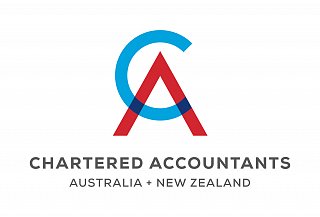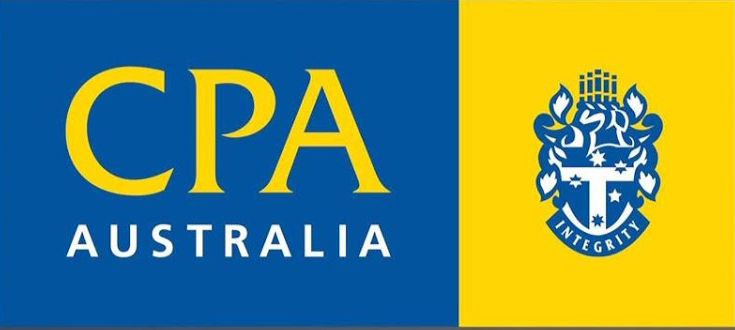
8.9%
ABOUT
ADMISSION
REQUIREMENTS
CREDIT FOR
PRIOR LEARNING
COURSE STRUCTURE
AND CONTENT
MODES OF STUDY
ASSESSMENT
ABOUT THIS COURSE
The Diploma of Accounting is a one-year full-time (or part-time equivalent) AQF level 5 qualification designed to enable students to acquire a broad and coherent knowledge of the key foundational theories and practices that underpin accounting practice as it operates in dynamic business contexts.
Throughout the course, students will acquire knowledge and skills including the underlying principles, concepts and technical knowledge that inform the work of para-professionals in the Accounting sphere. The units have been framed in a way that assures that they will be well orientated to work in innovative and entrepreneurial organisations.
In addition, the course introduces students to the principles of management and effective business communication. Students study business statistics to complement studies in accounting and economics. The course also provides a foundational treatment of business ethics.
Our Bachelor of Accounting is accredited by Chartered Accountants ANZ, IPA and CPA Australia.



Guaranteed entry

Duration
(or equivalent part time)
Start dates
Semester 2: JUL 22
September Intake: SEP 9
Summer Intake: NOV 25

Study options
Full Time

Fees

GRADUATE ATTRIBUTES
- Graduates will be able to assist accountants to identify problems and develop solutions through independent thinking.
- They will be able to operate in creative teams, their role in those teams being to add analytics and data of an accounting nature and to help integrate that data into the managerial discussion.
- Graduates of the course will be able to apply their accounting knowledge and skills with initiative and judgement and to responsibly and ethically adapt their knowledge and skills to a range of business and entrepreneurial contexts
The graduate will have formed these attributes to a sufficient level of depth and sophistication to take them into the workplace or continue their studies to a higher level. A graduate of the Diploma of Accounting will be well placed to work as an assistant to a professional accountant in a range of workplace contexts and environments. Thus, graduates could be employed as an Accounting Clerk, Office Manager, Administrative Assistant, Accounts Payable Officer, Accounts Receivable Officer, Payroll Clerk or Bookkeeper. The framing of the course within an entrepreneurial context presents a unique value proposition designed to give graduates a competitive edge when competing for jobs in firms that see themselves as entrepreneurial and innovative.
ADMISSION REQUIREMENTS
To satisfy the general entrance requirements for admission to the course, applicants must meet at least one of the following entry requirements:
DOMESTIC APPLICANTS:
- Successful completion of Year 12 and an ATAR score of 50 or above; or
- Successful completion of an equivalent secondary qualification either interstate or overseas (in English or see below); or
- Satisfactory completion of an accredited Tertiary Preparation Program or a Foundation Year Program offered by an Australian university that would enable students to gain entry to an Australian university; or
- Satisfactory completion of one year of accredited full-time study at a registered institute of tertiary education at AQF level 4 or above; or
- Admission to candidature for an undergraduate degree at an Australian University.
INTERNATIONAL APPLICANTS:
Students whose first language is not English must demonstrate competency in the English language. English proficiency can be demonstrated by providing proof of an International English Language Testing System (IELTS) overall test result of 6.0 (no band lower than 5.5) or equivalent English language test such as TOEFL or PTE.
Other acceptable evidence of English proficiency includes:
- Completion of secondary education/undergraduate degree via the medium of English; or
- Successful completion of Year 12 secondary schooling in Australia (minimum of 1 school year to be completed in Australia within the last 2 years); or
- Successful completion of an Australian qualification recognised as at least AQF Certificate IV (minimum period of study of 1 school year within the last 2 years); or
- Successful completion of a Tertiary Studies Foundation Program (minimum period of study of 1 school year).
- International students who do not meet the specified English proficiency requirements may undertake an ELICOS (English Language Intensive Courses for Overseas Students) program prior to undertaking the course.
In addition, all students (domestic and international) must be 18 years of age or over at the time that they commence the course for which they have applied.
COURSE STRUCTURE AND CONTENT
The Diploma of Accounting is a 1-year, 2-semester Diploma. To fulfil the requirements of the award, students must complete a total of 80 credit points or 8 units. Each unit is 10 credit points.
SEMESTER 1
| Unit Code | Unit Name |
|---|---|
| ACC101 | Accounting Practice |
| BUS101 | Business Communication |
| BUS102 | Management Principles |
| ENT101 | Introduction to Entrepreneurship and Innovation |
SEMESTER 2
| Unit Code | Unit Name |
|---|---|
| BUS103 | Accounting for Decision Making (Prerequisite ACC101 Accounting Practice |
| BUS105 | Economics |
| BUS107 | Business Ethics |
| BUS104 | Statistics for Business |
CREDIT FOR PRIOR LEARNING
Crown Institute of Higher Education (“CIHE”) grants credit towards a course of study on the basis of prior learning, whether from formal studies or professional work experience to ensure that students commence study at a level appropriate to their prior learning experiences so that they are not required to repeat prior learning.
For more information please visit:
MODES OF STUDY ASSESSMENT
At CIHE we provide workshop-based engaged learning.
All our units involve participation in 3 hours of on-campus workshop per week for 12 weeks. Each week’s workshop will require preparation – reading, activities and online work.
All our units are supported by an online learning management system – Moodle.
We use a range of assessment tasks at CIHE to help you monitor your learning – quizzes, group work, case-studies and scenario-based activities, reports and exams.
Our assessment tasks are designed to be work-oriented, that is, they are designed to mimic the real world processes involved in business so that you will be ready to start your career as an active independent professional.
INDICATIVE STUDENT NUMBERS
Indicative student numbers for this course are 20 enrolled students at any one time.

